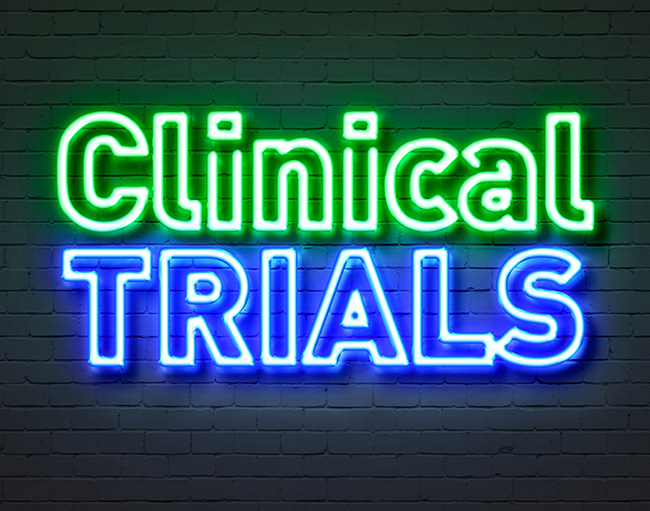Clinical Efficacy and Medical Trials of THC: Protocols and Results

Introduction to THC
THC, or tetrahydrocannabinol, is the main psychoactive compound in cannabis. It is known for its ability to produce a “high” and is used by many for both recreational and medical purposes. As interest in THC grows, so does the need for research. Understanding its clinical efficacy is crucial for patients and healthcare providers. This article will explore the clinical trials of THC, the protocols used, the results obtained, and the scientific evidence supporting its use.
What is THC?
THC is one of over 100 cannabinoids found in the cannabis plant. It interacts with the endocannabinoid system in the body. This system helps regulate various functions, including mood, appetite, and pain sensation. THC binds to cannabinoid receptors in the brain and body. This interaction produces various effects, such as euphoria, relaxation, and altered sensory perception.
The Role of THC in Medicine
Chronic Pain
THC may help reduce pain levels in patients with chronic conditions.
Nausea and Vomiting
It is often used to alleviate nausea, especially in cancer patients undergoing chemotherapy.
Appetite Stimulation
THC can increase appetite, which is beneficial for patients with conditions like HIV/AIDS.
Sleep Disorders
Many people use THC to help with insomnia and other sleep issues.
Importance of Clinical Trials
Clinical trials are essential for understanding the safety and effectiveness of THC. They provide scientific evidence that helps guide medical use. Trials assess how THC affects patients and what dosages are effective.
Types of Clinical Trials
- Randomised Controlled Trials (RCTs): Participants are randomly assigned to receive either THC or a placebo. This helps eliminate bias and provides clear results.
- Observational Studies: Researchers observe patients using THC without assigning treatments. This helps gather data on real-world effects.
- Longitudinal Studies: These studies follow patients over time to assess long-term effects and outcomes.
Protocols for THC Clinical Trials
Study Design
The design of a clinical trial is crucial. A well-structured study can yield reliable results. Key elements of study design include:
- Objective: What the study aims to achieve. For example, assessing the effectiveness of THC for chronic pain.
- Participants: The group of people involved in the trial. This includes criteria for inclusion and exclusion.
- Intervention: The specific THC product being tested. This includes dosage and method of administration.
- Outcome Measures: The criteria used to evaluate the effectiveness of THC. This may include pain levels, quality of life, and side effects.
Regulatory Approval
Before a clinical trial can begin, it must receive regulatory approval. This ensures that the study meets ethical and safety standards. In the U.S., the Food and Drug Administration (FDA) oversees clinical trials. Researchers must submit a detailed protocol for review.
Informed Consent
Participants must provide informed consent before joining a trial. This means they understand the risks and benefits of the study. They should know what to expect during the trial.
Results of THC Clinical Trials
Pain Management
Many studies focus on THC’s effectiveness in managing pain. Research shows that THC can help reduce chronic pain. A systematic review found that THC significantly decreased pain levels in patients with various conditions. This includes arthritis, fibromyalgia, and neuropathic pain.
Nausea and Vomiting
THC is also studied for its effects on nausea and vomiting. This is particularly relevant for cancer patients undergoing chemotherapy. Several trials have shown that THC can effectively reduce nausea. Patients reported fewer vomiting episodes and improved appetite.
Anxiety and Depression
Some studies explore THC’s effects on mental health. Research indicates that THC may help alleviate symptoms of anxiety and depression. However, results vary. Some users report increased anxiety with higher doses. More research is needed to understand the relationship between THC and mental health.
Sleep Disorders
THC is often used to improve sleep quality. Many people with insomnia turn to THC for relief. Clinical trials suggest that THC can help users fall asleep faster and stay asleep longer. However, tolerance can develop over time, leading to reduced effectiveness.
Other Medical Conditions
THC is being studied for various other conditions. This includes:
- Multiple Sclerosis: THC may help reduce muscle spasms and improve mobility.
- Appetite Stimulation: THC is known to increase appetite, making it useful for patients with conditions like HIV/AIDS.
- Post-Traumatic Stress Disorder (PTSD): Some studies suggest that THC may help reduce symptoms of PTSD.
Scientific Evidence and Limitations
Evidence from Clinical Trials
Clinical trials provide valuable evidence about THC’s efficacy. However, the quality of studies varies. Some trials have small sample sizes or lack rigorous design. This can affect the reliability of results.
Need for More Research
While there is promising evidence, more research is needed. Many studies do not meet the gold standard of randomised controlled trials. More high-quality trials will help clarify THC’s benefits and risks.
Variability in Products
The composition of THC products can vary widely. Different strains of cannabis have different effects. This variability can make it difficult to compare results across studies. Standardisation of products is essential for consistent findings.
Risks Associated with THC Use
Short-Term Effects
THC can cause short-term effects, including:
- Increased Heart Rate: THC can raise heart rate, which may be concerning for some individuals.
- Dry Mouth: Many users experience dry mouth after using THC.
- Dizziness: Some people may feel lightheaded or dizzy after consumption.
Long-Term Effects
The long-term effects of THC use are still being studied. Some potential risks include:
- Dependency: Regular use of THC can lead to dependency in some individuals.
- Cognitive Effects: Long-term use may affect memory and learning, especially in young users.
- Mental Health Issues: In some cases, THC use may exacerbate anxiety or depression.
Best Practices for Using THC
Consult a Healthcare Professional
Before using THC, it is important to consult a healthcare professional. They can provide guidance based on individual health conditions. This is especially important for those with existing health issues.
Start with Low Doses
For first-time users, starting with a low dose is recommended. This helps gauge individual tolerance and response to THC. Gradually increasing the dose can help avoid adverse effects.
Monitor Effects
Users should pay attention to how THC affects them. Keeping a journal of experiences can help identify patterns. This can assist in adjusting dosages and understanding personal reactions.
Choose Quality Products
Selecting high-quality THC products is crucial. Look for products that have been tested by third-party laboratories. This ensures safety and accurate labelling.
Stay Informed
Staying informed about THC and its effects is important. Reading scientific literature and trusted sources can help users make educated decisions. Understanding the potential risks and benefits is essential for safe use.
The Importance of Responsible Use
Understanding Responsible Use
Responsible use of THC means being aware of how it affects you. It involves making informed choices about when and how to use THC products. Responsible users consider their health, environment, and social situations.
Setting Limits
Set personal limits on how much THC you will consume. This can help prevent overconsumption and negative effects. It is essential to know your own tolerance levels and stick to them.
Avoiding Use in High-Risk Situations
Avoid vaping THC in high-risk situations. This includes driving, operating machinery, or engaging in activities that require full attention. THC can impair coordination and judgment, leading to dangerous situations.
Global Market Trends
The global market for THC products is expanding. Countries in Europe, Asia, and Latin America are exploring legalisation. This presents opportunities for growth. As more countries legalise cannabis, the demand for THC products will likely increase.
Cultural Attitudes
Cultural attitudes toward cannabis vary widely. In some cultures, cannabis is accepted and used for medicinal purposes. In others, it is stigmatised and illegal. These attitudes can influence market growth and consumer behaviour.
The Future of THC Products
Innovations in Product Development
The THC market is seeing innovations in product development. Companies are creating new products to meet consumer demands. This includes new flavours, formulations, and delivery methods. For example, companies are developing THC-infused beverages and snacks.
Focus on Health and Wellness
Many consumers view THC as part of a healthy lifestyle. This is especially true for CBD products. Consumers are looking for products that promote wellness. This trend is driving the development of new health-focused THC products.
The Rise of CBD Products
CBD is becoming increasingly popular. Many consumers are interested in its potential health benefits. CBD products are often marketed as non-psychoactive alternatives to THC. This presents an opportunity for companies to expand their product lines.
Conclusion
THC has shown promise in clinical trials for various medical conditions. Its effectiveness in managing pain, nausea, and sleep disorders is supported by research. However, more studies are needed to fully understand its benefits and risks. Consumers should prioritise quality and safety when using THC products. Consulting healthcare professionals and staying informed are essential steps. The future of THC research looks bright, with opportunities for new discoveries and improved patient care.
References
- Hill, K.P. (2015). Medical marijuana for treatment of chronic pain and other medical and psychiatric problems: A clinical review. JAMA, 313(24), 2474-2483. https://doi.org/10.1001/jama.2015.6199
- Whiting, P.F., Wolff, R.F., Deshpande, S., Di Nisio, M., Duffy, S., Hernandez, A.V., … & Kleijnen, J. (2015). Cannabinoids for medical use: A systematic review and meta-analysis. JAMA, 313(24), 2456-2473. https://doi.org/10.1001/jama.2015.6358
- National Academies of Sciences, Engineering, and Medicine. (2017). The health effects of cannabis and cannabinoids: The current state of evidence and recommendations for research. The National Academies Press. https://doi.org/10.17226/24625
- Zhornitsky, S., & Potvin, S. (2012). Cannabidiol in humans—the quest for therapeutic targets. Pharmaceuticals, 5(5), 529-552. https://doi.org/10.3390/ph5050529
- Abrams, D.I., Guzman, M., & van der Meulen, H.C. (2020). Cannabinoids in cancer care. The Lancet Oncology, 21(5), e336-e345. https://doi.org/10.1016/S1470-2045(19)30693-6





